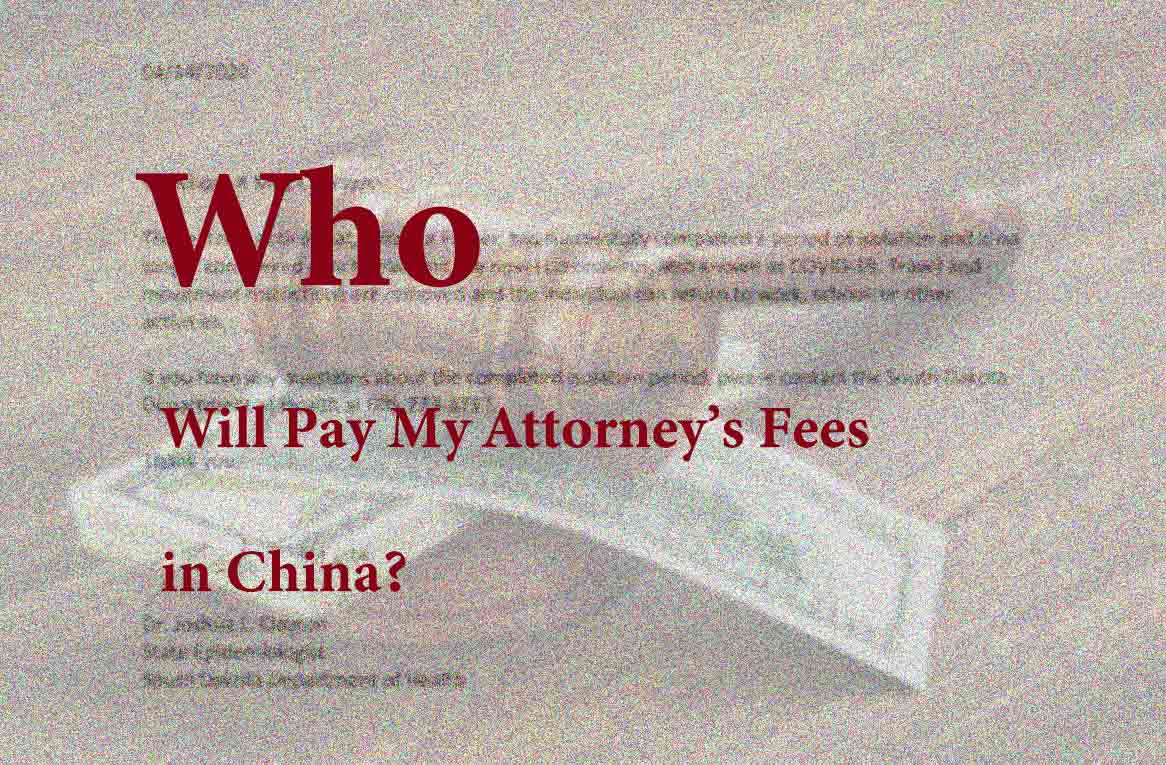
That is quite a common question when my clients consider filing a case. Most of them imagine that they would get all their claims with the losing party finally paying for their attorney’s fee.
HOWEVER, Chinese laws only stipulate that court costs shall be borne by the losing party, but do not provide that who shall pay for the legal fees.
In practice, Chinese courts generally hold that “he who engages the services of a lawyer shall pay the legal fees therefor”.
Court costs are charged by the courts or arbitral organs ahead of the upcoming legal proceedings and shall be turned over to the state treasury. When one party files a case, court costs shall be paid by the applicant/appellant.
When a decision is made, the losing party will finally bear the court fees. The losing party will pay the fees to the court, then the court will refund the applicant.
As for attorney’s fees, each party pays its own costs, irrespective of who won or lost. On one hand, as in civil actions, some cases are complicated; the parties may worry about the potentially high costs of attorney’s fees, which will scare off some people, especially those without the funds.
On the other hand, there is no standard for attorney’s fees; the court may find it hard to determine how much is reasonable to be compensated by the losing party.
Exceptions:
Surely there are some exceptions that the losing party compensates attorney’s fees, but just in some special types of cases.
For example, in a guarantee dispute, the guarantor shall pay the debtor the fees for satisfying the debts, including attorney’s fees.
In an IP right dispute, the court may order the infringer to compensate the right holder by covering his attorney’s fees. In those cases, the rights and obligations are comparatively clear, so it is a way to intimidate the infringers before they infringe.
Other legal fees:
Besides the court costs and attorney’s fees, other costs may be incurred at court, including but not limited to the following:
The verification fees, for example, verification fees of signature, which can be compensated by the losing party, but generally the third-party entity shall be appointed by the court or be approved by the other party.
The compensation of wages for witnesses, experts, and translation fees for translators. All these fees can be compensated by the losing party but the amount of compensation shall be decided by the court based on various factors, such as the local economic development and so on.
All in all, if you are involved in a lawsuit in China, you might not transfer your lawyer’s fees to the opposing party even if you win in most cases, and you are unlikely to bear others’ legal fees correspondingly.
If you have more questions about china labor/employment contract law, welcome to contact me.
